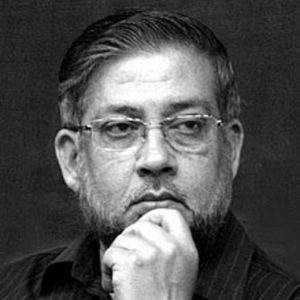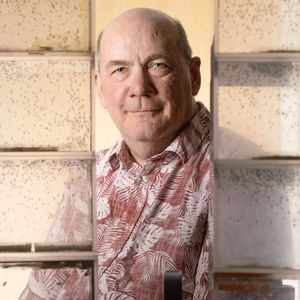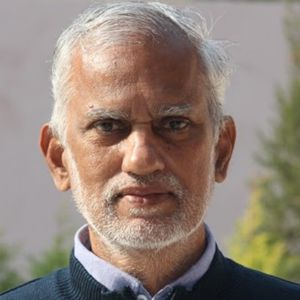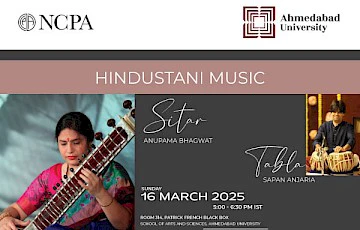The 4th Conference of the Indian Society of Evolutionary Biologists

Jointly organised by the Indian Society of Evolutionary Biologists (ISEB) and Ahmedabad University, the 4th Conference of the Indian Society of Evolutionary Biologists (ISEB4) was held at Ahmedabad University on February 9-11, 2023. It was attended by about 200 renowned evolutionary biologists, researchers, and students worldwide. Delivering the keynote address, Raghavendra Gadagkar, DST Year of Science Chair and Professor, Centre for Ecological Sciences, Indian Institute of Science, Bangalore, and Founding President of ISEB, said, “Nobody lets students and young researchers think independently and at leisure. But it is crucial to let them. After all, science is a work in progress, not built in a day, and research must be allowed at its own pace. We could do in-depth research because we gave it time and challenged what we read in scientific literature and not merely accepted it.” He urged young students and researchers to question everything.
Subhash Rajpurohit, Convenor of ISEB4, said, “In India, evolution as a subject is still in its nascent stages, and public engagement is lacking. However, once we broadly accept it and start using its applications in the real world, many complex problems can be solved effectively. The ISEB Conference is a step in this direction.”
ISEB4 had interesting sessions lined up with plenary speakers Allen Gibbs, Professor, University of Nevada, USA; Paul Schmidt, Professor, University of Pennsylvania, USA; Renee M Borges, Professor, Indian Institute of Sciences, Bengaluru, India; Amitabh Joshi, Professor, Jawaharlal Nehru Centre for Advanced Scientific Research (JNCASR), India; and Jun-Yi Leu, Distinguished Research Fellow, Academic Sinica, Taiwan.
Besides 40+ invited and selected talks, there were 83 posters as well, which ranged from evolution, ecology, climate change, pandemic, phenotypic plasticity, behaviour, taxonomy, flower colouration, physiology, and rapid evolution.
In his address, LS Shashidhara, President, International Union of Biological Sciences (IUBS), warned about the possible impact of climate change on life and future biological challenges. He also shared the body’s science outreach initiatives. The Conference was supported through conference support grants from the Gujarat State Biotechnology Mission (GSBTM) and the Science and Engineering Research Board (SERB) of the Government of India.
Best Poster Awards
- Bhavya Dharmaraj (National Centre for Biological Sciences, Bengaluru)
- Sonawane Shraddha V (Ramniranjan Jhunjhunwala College, Mumbai)
- Sanghmitra Kumar (Indian Institute of Technology, Mumbai)
- Srijan Seal (Ashoka University, Sonipat)
- Medha Rao (Jawaharlal Nehru Centre for Advanced Scientific Research, Jakkur)
- Harsha Kumar (Indian Institute of Science Education and Research, Tirupati)
"Nothing in Biology Makes Sense Except in the Light of Evolution."- Theodosius Dobzhansky, Ukrainian-American geneticist and evolutionary biologist.
Dobzhansky’s statement not only captures the crux of the Darwinian synthesis, but goes further to underline the importance of evolutionary biology in connecting seemingly disconnected disciplines in biology. Considering the current global crises, the tenets of evolutionary biology can be stretched to several walks of life.
The 4th Conference of the Indian Society of Evolutionary Biologists (ISEB4) invites evolutionary biologists, from all sectors (academia/industry/forest), both within and outside India, to adjourn and collectively reflect on the role of evolutionary biology in cross-talks with (but not limited to) medicine, immunity, and ecology of organisms. At ISEB4, Ahmedabad University aims to push the envelope with deep discussions and resource sharing in the space of evolutionary biology. The three-day conference aims at stimulating discussions, fostering collaborations, and establishing local networks. The Conference will have talks delivered by global evolutionary biologists. Students and Early Career Researchers are strongly encouraged to apply. The best posters and talks will be granted rewards.
ISEB has constantly endeavored to incorporate global participation to foster the exchange of thoughts and ideas, collaborations, and the sharing of resources. To encourage student participation, we welcome abstracts from diverse areas related to evolution, with the broad approach of 'molecules to ecology'. Although evolutionary biology is an overarching discipline of biology, talks and presentations on topics relevant to current global crises would be appreciated. These topics may include but are not limited to:
- Evolutionary medicine: How did human immunity/disease susceptibility evolve? Why are humans more prone to cancer, diabetes, and metabolic disorders now as compared to the past?
- Conservation strategies: How do species respond to environmental heterogeneity? Can species adapt to rapid climate change? If so, can we predict the rate of species loss and implement measures to conserve them?
- Climate change and food crisis: Feeding the ever-growing populace is a challenge. How do we optimise food quality and quantity in the face of over-burdened agricultural systems, pathogen attacks, and disease outbreaks in crops? An evolutionary perspective could help in tackling core issues of food management.
For queries, please send an email to [email protected]
Register for the Conference Abstract Submission Download Brochure
Important Dates
| Date | Timeline |
| November 1, 2022 | Abstract Submission opens |
| December 20, 2022 | Closing date for Abstract Submission |
| January 5, 2023 | Oral and Poster Presentation Decisions |
| December 20, 2022 | Registration Deadline |
About ISEB
The Indian Society of Evolutionary Biologists (ISEB) was founded in 2018 with the aim of providing a common platform for communicating advancements and stimulating discussions among Indian evolutionary biologists. Since its inception, ISEB has successfully conducted three Conferences, the first two in Bangalore, Karnataka, and the third in Patiala, Punjab. Soon after the 1st Conference, ISEB's endeavour attracted international delegates. In 2019, the Consulate General of Switzerland, Swissnex in India, joined hands with ISEB to fund the 2nd Conference comprising Indian and Swiss evolutionary biologists. The 3rd Conference, which was held online due to the Covid-19 pandemic, had virtual presentations by researchers from across the globe. Both, student participation at the ISEB Conferences and faculty involvement from the evolution field in the country, are increasing every year.
About Ahmedabad University
Ahmedabad University is a leading private, non-profit research university offering students a liberal education focused on interdisciplinary learning, practice orientation, and research thinking. The University, established in 2009, is rooted in the vision of one of India’s finest educational foundations, the Ahmedabad Education Society, which was founded in 1935 by nationalist leaders. Programmes at the University range from bachelors to doctoral levels in humanities and social sciences, natural sciences, engineering, and management through its 10 Schools and Centres.
An urban university, Ahmedabad promotes independent-mindedness and diversity across all dimensions of its activity and helps students mature into critical thinkers who are analytically equipped, practically oriented, and contextually aware global citizens. The University provides a contemporary educational framework that brings liberal arts, sciences, and the professions to engage together in creating new knowledge for addressing complex challenges of the society and in offering majors that merge the boundaries of disciplines to prepare students for the new economy.
Registration Guidelines
- Save the payment transaction receipt, either as a pdf file or an image. The transaction receipt must contain the transaction number, which will be used by our bank to identify the payment.
- Once the registration form is submitted, you will receive an acknowledgment mail from the ISEB4 organising committee. However, we will confirm your registration once the payment is verified from our end, and this may take up to seven working days.
- Participants (only students) requiring financial assistance for attending the Conference may indicate the same in the registration form.
Submission Deadline
- Abstracts can be submitted through the registration form on or before December 15, 2022.
- Please note that the submission and selection of abstracts for posters/talks are not necessary to attend the Conference.
Submission Guidelines
- Title: Should not exceed 150 characters (with spaces). Keep titles short, meaningful, and catchy.
- Author names: Only include full (given) name and family name. Please do not include titles/degrees with author names.
- Abstract length: Should not exceed 150 words. Please limit the abstract to a single paragraph. No references, figures, or tables should be included.
- The presenting author should submit the abstract. Presenting/submitting author need not be the first author.
- All submissions will be reviewed by a committee.
- Authors can indicate their preference for poster/oral presentations.
- The committee will try to accommodate authors' preferences for presentation; however, this will depend on the availability of slots for oral presentations.
Registration Fees
| Early Bird Registration | On-the-Spot Registration | Registration for ISEB Members | |||
|---|---|---|---|---|---|
| Registered in India | Registered outside India | Registered in India | Registered outside India | ||
| Faculty/ Scientist | INR 5000 | USD 120 | INR 6000 | USD 150 | INR 4500 |
| Postdocs | INR 4000 | USD 100 | INR 5000 | USD 125 | INR 3500 |
| Students | INR 3000 | USD 80 | INR 4000 | USD 100 | INR 2500 |
*All prices mentioned are inclusive of GST
Note: The registration fee will include tea/ coffee/ snacks (tea break snacks, poster session)/ lunch. The delegates will need to cover their dinner and accommodation. For accommodation, please check the Travel and Accommodation page which lists hotels with negotiated pricing.
Images of the Conference
Please click here to view the images of the conference
Interviews with Keynote and Plenary Speakers
| Date | Timeline |
| Day 1: February 9, 2023 | |
| 8:00 AM - 9:00 AM | Registration: Rooms 107 and 110, University Centre |
| 9:00 AM - 9:20 AM | Opening Remarks: Professor Pankaj Chandra Vice Chancellor, Ahmedabad University |
| 9:20 AM - 9:30 AM | Inaugural Speech: Dr N.G. Prasad Secretary ISEB4 Professor, IISER Mohali |
| 9:30 AM - 10:05 AM | Key-note Address: Professor Raghavendra Gadagkar Centre for Ecological Sciences, IISc, Bengaluru The Story of Caste and Nutrition in the Indian Paper Wasp Ropalidia marginata |
| 10:05 AM - 10:40 AM | Plenary 1: Professor Renee Borges Centre for Ecological Sciences, IISc Bengaluru Game, Set, and Match: Life History Contests in Mutualist and Parasite Networks |
| 10:40 AM - 11:05 AM | Dr Sanjay Sane NCBS-TIFR, Bengaluru Evolutionary Adaptations to Miniaturization in Insect Flight |
| 11:05 AM - 11:20 AM | Tea/ Coffee break, 019, Ground Floor, GICT Building |
| 11:20 AM - 11:45 AM | Dr N. G.Prasad IISER Mohali Experimental Evolution of Reproductive Behaviour |
| 11:45 AM - 12:10 PM | Dr Deepa Agashe NCBS-TIFR, Bengaluru The Layered Costs and Benefits of Translational Redundancy |
| 12:10 PM - 12:35 PM | Dr Yuval Sapir Tel Aviv University, Israel All the Colours of the Rainbow: Evolution of Flower Colour Variation |
| 12:35 PM - 1:00 PM | Dr Imroze Khan Ashoka University, Sonipat Mutation Rate Evolves Under Strong Pathogen Selection |
| 1:00 PM - 2:00 PM | Lunch: Rooms 107 and 110, University Centre |
| 2:00 PM - 2:35 PM | Plenary 2: Dr Jun-Yi Leu Institute of Molecular Biology, Academia Sinica, Taiwan A Hunt for the Hopeful Monster: Phenotypic Robustness and Genetic Buffering |
| 2:35 PM - 3:00 PM | Dr Kavita Jain JNCASR, Bengaluru Polygenic Adaptation Dynamics in a Large, Finite Population |
| 3:00 PM - 3:25 PM | Dr Krishna Swamy Ahmedabad University, Ahmedabad Multi-chromosomal Aneuploidy is a Proteotoxicity Tolerating Mutation in Introgressed Hybrids |
| 3:25 PM - 3:50 PM | Dr Jitesh Jhawar Ahmedabad University, Ahmedabad Individual and Population-level Response to Heat Stress revealed by Individual Tracking inside a Honeybee Colony? |
| 3:50 PM - 4:05 PM | Tea/ Coffee Break: 019, Ground Floor, GICT Building |
| 4:05 PM - 4:40 PM | Dr H A Ranganath Centre for Human Genetics, Bengaluru Haldane’s Rule: One Hundred Years |
| 4:40 PM - 5:05 PM | Dr Jahnavi Joshi CCMB, Hyderabad Genetic Diversity varies with Species Traits and Latitude in Predatory Soil Arthropods (Myriapoda: Chilopoda) |
| 5:05 PM - 5:30 PM | Dr Himender Bharti Punjabi University, Patiala The Concept of Monophyly, Linnaean Taxonomy, Evolutionary implications: The way Forward in Systematics |
| 5:30 PM - 7:30 PM | Poster Session (P1-40) Airport Area, GICT Building |
| Day 2: February 10, 2023 | |
| 8:00 AM - 9:00 AM | Registration: Room 107 and 110, University Centre |
| 9:00 AM - 9:15 AM | Professor Balaji Prakash Ahmedabad University |
| 9:15 AM - 9:50 AM | Address by: Professor L S Shashidhara IUBS President Ashoka University/ IISER Pune One Health Approaches to Reduce the Risk of Zoonotic Diseases and Public Health Burden |
| 9:50 AM - 10:25 AM | Plenary 3: Professor Allen Gibbs University of Nevada, Las Vegas, USA Can Experimental Evolution Tell Us About 'Real' Evolution? |
| 10:25 AM - 10:50 AM | Dr Martin Kapun Natural History Museum, Vienna, Austria Living in a Changing World – The Impact of Genomic Variation and Host-microbe Interactions on Climate Adaptation in D. melanogaster |
| 10:50 AM - 11:10 AM | Tea/ Coffee Break: 019, Ground Floor, GICT Building |
| 11:10 AM - 11:35 AM | Dr Ullasa Kodandaramiah IISER Thiruvananthapuram Influence of Background Properties on Animal Camouflage |
| 11:35 AM - 11:50 AM | Athulya Girish K. NCBS-TIFR, Bengaluru Mimicry Promotes Morphological Diversification but not Speciation in Mimetic Swallowtail Butterflies |
| 11:50 AM - 12:05 PM | Dr Pratibha Sanjebam NCBS-TIFR, Bengaluru Rice Phyllosphere Microbial Communities are Shaped by the Host Land Race |
| 12:05 PM - 12:30 PM | Dr V.V.Robin IISER Tirupati Evolution of Shola Skyisland birds; What we have learnt, and the Threats from Changes in the Legal Provisions for Field Ornithological Research |
| 12:30 PM - 12:55 PM | Dr Anindita Bhadra IISER Kolkata Survival in the Human Jungle: A Dog Perspective |
| 12:55 PM - 1:55 PM | Lunch: Rooms 107 and 110, University Centre |
| 1:55 PM - 2:30 PM | Plenary 4: Professor Amitabh Joshi JNCASR, Bengaluru Crowded Fruit Fly Cultures: It's not just the Density! |
| 2:30 PM - 2:55 PM | Dr Sudipta Tung Ashoka University, Sonipat Linking Diet Composition to Organismal Performance: a Drosophila Story |
| 2:55 PM - 3:20 PM | Dr Bodhisatta Nandi IISER Berhampur Reproductive Adaptation in Response to Alteration in Dietary Ecology |
| 3:20 PM - 3:45 PM | Dr MD Sharma University of Exeter, UK Exploring the Fundamentals |
| 4:10 PM - 4:25 PM | Tea/ Coffee Break: 019, Ground Floor, GICT Building |
| 4:25 PM - 5:20 PM | Popular Science talk: Professor R. Uma Shankar IIT Jammu Unravelling Rivalry: In Plants and Microbes |
| 5:20 PM - 7:30 PM | Poster Session (P 41-80) Airport Area, GICT Building |
| Day 3: February 11, 2023 | |
| 8:00 AM - 9:00 AM | Registration: Room 107 and 110, University Centre |
| 9:00 AM - 9:35 AM | Plenary 5: Professor Paul Schmidt University of Pennsylvania, USA Rapid Adaptation in Natural Populations: Insights and Implications |
| 9:35 AM - 10:00 AM | Dr Sheeba Vasu JNCASR, Bengaluru Can Drosophila Populations Maintained under Semi-natural Conditions tell us about Adaptations to Daily and Seasonal Cycles? |
| 10:00 AM - 10:25 AM | Dr Ashwini Mohan Natural History Museum, London, UK Genomic landmarks: How does Chromosome Evolution Influence Landmark-based Estimates of Genomic Disparity? |
| 10:25 AM - 10:50 AM | Professor Ratna Ghosal Ahmedabad University, Ahmedabad Understanding Interactions through Different Lenses for the the Fish and the Crocodile Systems |
| 10:50 AM - 11:05 AM | Tea/ Coffee Break: Airport Area, First Floor, GICT Building |
| 11:05 AM - 11:30 AM | Dr Qudsia Tahseen Aligarh Muslin University, Aligarh Diversity of nematodes – the remarkable success trait |
| 11:30 AM - 12:00 PM | Dr Surendra Ghaskadbi MACS-Agharkar Reseach Institute, Pune Hydra Provides Insights into Evolutionary Ancient Functions of Cell Signaling Molecules |
| 12:00 PM - 12:15 PM | Dr Harshad Mayekar Ahmedabad University, Ahmedabad Multi-faceted Insect Cuticle- Different Stages- Different Patterns |
| 12:15 PM - 12:30 PM | Dr Sruthi Unnikrishnan NCBS-TIFR, Bengaluru Evolution of Delayed to Accelerated Behavioural Maturation from Open-to Cavity-nesting Honey Bees |
| 12:30 PM - 12:45 PM | Dr Dipendranath Basu NCBS-TIFR, Bengaluru The Tempo and Mode of Character Evolution in the Assembly of Mimetic Communities |
| 12:45 PM - 1:00 PM | Tarunkishwor Yumnam IISER Thiruvananthapuram Relative Humidity Modulates Eyespots Size in the Tropical Butterfly |
| 1:00 PM - 2:00 PM | Lunch: Rooms 107 and 110, University Centre |
| 2:00 PM - 2:15 PM | Dr Manvi Sharma Ashoka University, Sonipat The Rise of the Generalist: Egg-laying Decisions in an Uncertain World |
| 2:15 PM - 2:30 PM | Dr Swapnil Supekar Savitribai Phule University, Pune Antipredator Responses of Larval Skipper Frogs, Euphlyctis cyanophlyctis to Temporal Variation in Predation Risk |
| 2:30 PM - 2:45 PM | Sonali Shinde Abasaheb Garware College, Pune Vaccine or Evolution: What made Covid-19 Mild? |
| 2:45 PM - 3:00 PM | Chiti Arvind IISER Tirupati Cultural Variation in Songs of an Endemic Bird in the Shola Sky Islands of the Western Ghats in India |
| 3:00 PM - 3:15 PM | Nivetha Murugesan IISER Tirupati Multifunctional Evolution of Palm Squirrel Coat Coloration |
| 3:25 PM - 4:25 PM | Panel Discussion: What is wrong with how we teach Evolution, and how do we fix it? Moderator: Dr MC Arunan (HBCSE Mumbai), Dr Amitabh Joshi (JNCASR, Bengaluru), Dr Geetanjali Mishra (University of Lucknow), Dr TNC Vidya (JNCASR, Bengaluru), Dr Milind Watve (IISER Pune) |
| 4:25 PM - 4:40 PM | Tea/ Coffee Break: Airport Area, First Floor, GICT Building |
| 4:40 PM - 5:30 PM | Valedictory Function, Poster Presentation Awards and Concluding Remarks |
| 5:30 PM | Conference Ends. Farewell to Participants! |
Please click here to view the Abstract Booklet

ISEB4 Participating Institutions
- Ahmedabad University
- AIIMS Jodhpur
- Ashoka University
- Azim Premji University
- Benaras Hindu University
- CCMB-LaCONES,Hyderabad
- Central University of Rajasthan, Ajmer.
- Centre for Cellular and Molecular Biology, Hyderabad
- Chandra Bhanu Gupta Agricultural College, UP
- Delhi University
- Gujarat University
- Indian Institute of Science Education and Research Berhampur
- Indian Institute of Science Education and Research Mohali
- Indian Institute of Science Education and Research Pune
- Indian Institute of Science Education and Research Thiruvananthapuram
- Indian Institute of Science Education and Research Tirupati
- Indian Institute of Technology, Jammu
- Indian Institute of Technology, Madras
- Indian Institute of Technology, Mumbai
- Institute of Molecular Biology, Academia Sinica, Taiwan
- Jawaharlal Nehru Centre for Advanced Scientific Research, Bengaluru
- MES Abasaheb Garware College, Pune
- MIT-World Peace University
- Modern Education Society's Nowrosjee Wadia College, Pune
- National Centre for Biological Sciences
- National Institute of Science Education and Research, Bhubaneshwar
- Natural History Museum, London, UK
- Natural History Museum, Vienna, Austria
- Nature Mates - Nature Club, West Bengal
- Panjab University, Chandigarh
- Providence College, Kozhikode, Kerala
- Punjabi University, Patiala
- Rajiv Gandhi University Arunachal Pradesh
- Ramniranjan Jhunjhunwala College, Mumbai
- Savitribai Phule Pune University, Ganeshkhind, Pune
- Sheodeni Sao College (Magadh University), Bihar
- Sree Narayana Nattika College, Kerala
- Tel Aviv University, Israel
- Tezpur University
- University of Lucknow
- University of Nevada, Las Vegas, USA
- University of Pennsylvania, Philadelphia, USA
- Wild life Department, Gujarat University
- Zoological survey of India



Keynote Speaker
Plenary Talks
Address by
Popular Science Talk
Invited Speaker Talks
35+
Panel Discussion
Topic: What is wrong with how we teach evolution, and how do we fix it?
Other Highlights
- Student talks (6)
- Posters (83)
- Financial Support to Student Participants (56)
Presentations
Oral presentations: Please load your presentation well in advance of your scheduled slot. Kindly time your presentation according to the time allotted. We strongly encourage discussion after each talk, so do not stretch the presentation in the question answer slot. Details of presentation timings with split up of question answer will be emailed to all delegates.
Poster sessions
Date: February 9-10, 2023
We have around 40 poster presentations on 9th Feb and 40 poster presentations on February 10, 2023.
Timing: 5: 30 pm - 7: 30 pm
Venue: Airport Area, GICT Building, Ahmedabad University
Delegates allotted poster presentation on the first day i.e. February 9, 2023, should mount their posters during the lunch time on February 9, 2023 or preferably before that. They should take off their posters by the noon of February 10, 2023 (12:00 pm). Poster presenters on the second day will only be able to mount posters if presenters from the first day dutifully unmount their posters before lunch of February 10, 2023 i.e. the second day.
Poster board dimensions: Length (3.1 feet/ 94 cm) and Width (2.1 feet/ 64 cm). Posters material is subject to the delegate’s choice. Pins would be provided at the venue.

Travel, Accomodation, and Venue
By air
Ahmedabad University is located in the heart of Ahmedabad city, which has the Sardar Vallabhbhai Patel International Airport (11 km). Ahmedabad is well connected with the national capital (New Delhi) as well as with the major cities of India. The airport is a 25-minute drive by car from the Central Campus. Private cab services, including Ola and Uber, are available from the airport to the Campus.
By rail (and local transportation)
The Central Campus is a 25-minute drive from Ahmedabad Junction train station (also known as Kalupur Railway Station). This train station is very well connected with major cities of India.
If you are visiting from within the city, the 40/3, 47, 50, 56/1, 103, and 144 bus lines run west and stop at the University stop on University Road. Private cabs, including Ola and Uber, are available in most parts of the town.
Hotels
We request the delegates to book their accommodation early enough to avoid last minute surge in prices. Pleasant weather prevails from December till late February, attracting tourists, and hence hotel bookings are competitive.
Here are some accommodation options:
- The President Comfort Inn (800 m)
- The Summit (1.4 km)
- Hyatt Ahmedabad (3.4 km)
Note:
- You could also take the help of our travel desk in booking rooms in the above-mentioned hotels (at negotiated rates).
- Drop a line here with your arrival and departure dates: [email protected]
Venue

Contact Information

SUBHASH RAJPUROHIT
Associate Professor
Biological and Life Sciences, School of Arts and Sciences
Ahmedabad University
ISEB4 Coordinator
Email: [email protected]
Phone: +91.079.61911284/ 1286 (Office); +91.9116991001 (Mobile)
Faculty Profile: https://ahduni.edu.in/subhash-rajpurohit











